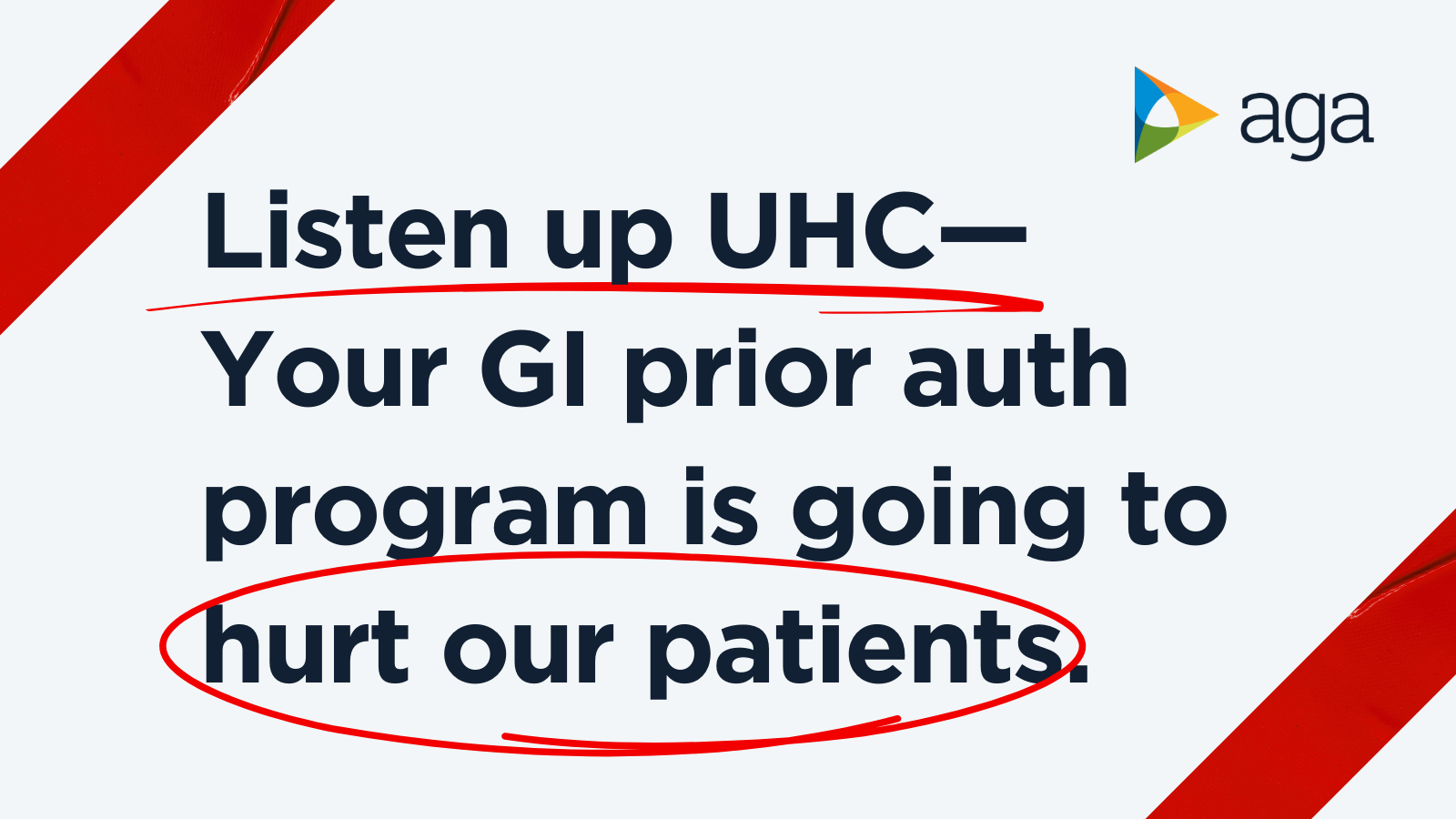When UnitedHealthcare announced plans to require prior authorization for gastroenterology endoscopy services for all commercial plans starting June 1 – regardless of the outpatient location – AGA quickly mobilized to meet with UHC and highlight the harm this policy will cause to patient care. Learn more about how this policy will hurt patients in a press release issued earlier this week.
Our members and the greater physician community also quickly activated and sent more than 1,000 letters to the UnitedHealth Group CEO explaining four impacts the new policy will have:
-
Cause delays for high-risk individuals.
-
Deter patients from undergoing medically recommended procedures.
-
Exacerbate existing sociodemographic disparities in care and outcomes.
-
Add to the growing administrative burden on physicians.
Despite our strong advocacy push, UHC has not rescinded its plans for this policy expansion and we now have less than a month until implementation.
This is contradictory to UHC’s decision to cut down on its use of prior authorization and fails to put patients first.

We are alarmed and disappointed by UHC’s failure to act, but with less than a month until this shortsighted policy goes into effect, we will not back down from fighting for you and your patients.
We continue to partner with the physician community and patient advocacy groups to warn about the wide-ranging effects this policy will have beyond GI and urge you to get involved if you haven’t already.
What else can you do?
-
Send a letter through the AGA advocacy action center.
Write United’s CEO if you haven’t already. This customizable letter outlines the impact of their GI endoscopy prior authorization program on gastroenterologists and their patients.
-
Use social media.
Tell United how its new GI prior auth program will affect you and your patients and choose from different social media graphics for Twitter.
-
Spread the word.
Encourage your #AGAgastrosquad to get involved by sending a letter or tweet. (Anyone can send a letter – just create an account first.) We need to work together to make a difference and prevent further delays to GI patient care!












